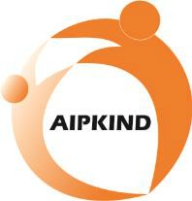Training as an Effort to Improve Knowledge, Attitude and Skills as a Motivator of Exclusive Breastfeeding
Abstract
Keywords
Full Text:
PDFReferences
WHO and UNICEF, Global Nutrition monitoring framework. Operational guidance for tracking progress in meeting targets for 2025. 2017. [Online]. Available: http://apps.who.int/iris/bitstream/handle/10665/259904/9789241513609-eng.pdf;jsessionid=82B08433379C3E3E69B3F8D4F2690C34?sequence=1
A. P. Bosnjak and J. Grgurić, “[Long-term health effects of breastfeeding].,” Lijec. Vjesn., vol. 129, no. 8–9, pp. 293–8, [Online]. Available: http://www.ncbi.nlm.nih.gov/pubmed/18198630
L. E. Rozovsky, “What’s at stake!,” Dent. Pract. Manage., pp. 21–22, 1988.
Profil Dinas Kesehatan Kota Bogor. 2021.
Indonesia. 2012. Peraturan Pemerintah Republik Indonesia PP 33 Tahun 2012 Tentang Pemberian Air Susu Ibu Eksklusif.
G. B. Scorecard, “Increasing Commitment To Breastfeeding Through Funding And Call To Action Priorities,” pp. 2017–2019, 2019.
WHO and UNICEF, “Improve access to skilled breastfeeding counselling,” pp. 1–4, 2022.
Dadhich, “NNF Evidence Based Guidelines - Management of Breastfeeding,” no. September, 2017.
UNICEF & WHO, “Breastfeeding Advocacy Initiative For the best start in life,” 2015.
O. C. Diseases, “The CDC Guide to Strategies to Support Breastfeeding Mothers and Babies”.
I. Pramukti, “Family Empowerment In Supporting Rural Mother ’ s Knowledge and Practices of Breastfeeding,” no. October 2015, 2016.
A. Safitri, A. Puspitasari, P. Penelitian, U. Kesehatan, and B. Penelitian, “( Effort Of Implementation Of Exclusive Assembly And Policy,” vol. 41, no. 1, pp. 13–20, 2018.
A. Al Jawaldeh, “Communication Strategies for Strengthening Breastfeeding Promotion in Countries in Conflict,” Int. J. Humanit. Soc. Stud., no. November, 2018, doi: 10.6084/m9.figshare.8247785.v1.
D. Taren, “Chapter 16 The Role of Breastfeeding Protection , Promotion and Support in a Developing World,” no. February, 2017, doi: 10.1007/978-3-319-43739-2.
S. and Madani, “Pregnant & Lactating Mothers ’ Attitudes and Practice of the Ten Steps to Successful Breastfeeding at King Fahd Hospital of University ( KFHU ) – Khobar , Saudi Arabia : Appraisal of Baby Friendly Hospital Initiatives,” vol. 6, no. 11, pp. 9–18, 2015.
UNICEF, From The First Making The Case For From The First. 2016. [Online]. Available: https://data.unicef.org/wp-content/uploads/2016/10/From-the-first-hour-of-life.pdf
DOI: https://doi.org/10.31983/jkb.v14i1.9611
Article Metrics
Refbacks
- There are currently no refbacks.
Abstracted/Indexed by:
Jurnal Kebidanan by http://ejournal.poltekkes-smg.ac.id/ojs/index.php/jurkeb is licensed under a Creative Commons Attribution-ShareAlike 4.0 International License.
View My Stats aw
.png)
.png)




.png)






